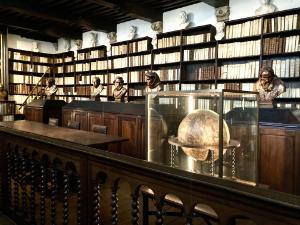Rare Books and Special Collections

This course is comprised of two strands. The first of these is concerned with the book as a physical artefact. Here we will explore the history of printing, with a particular focus on printing in Europe and England up to c.1850. We will explore how technology and book production develops in this period, including changes to illustration and binding. Also we consider the importance of books and libraries in terms of provenance research.
The second strand of the course is concerned with the curation of rare book collections. Here we will explore how to appropriately care for rare books to safeguard their future; how to develop your collections; and how to provide appropriate catalogues and procedures for accessing material.
Although the focus of the course is on rare books up to 1850 we also explore related items you might find in your collections, including newspapers, pamphlets, chapbooks, broadsides, fine press books, ephemera, and other relevant items.
